International
US removes Colombia’s FARC from terrorism list

AFP
The United States on Tuesday announced it has removed the former rebels of the Revolutionary Armed Forces of Colombia from its list of terrorist organizations.
“The Department of State is revoking the designations of the Revolutionary Forces of Colombia (FARC) as a Foreign Terrorist Organization (FT),” Secretary of State Antony Blinken said in a statement.
The US government had indicated its intention to remove the terror listing on November 23, on the eve of the fifth anniversary of the peace pact between the Colombian government and FARC, which led to their being disarmed and dissolved after decades of fighting.
The United States officially designated FARC as a foreign terrorist organization in 1997, the halfway point of the rebels’ six-decade conflict with the government.
On November 24, 2016, after negotiations in Cuba, the fearsome guerrilla group laid down their arms and signed a peace deal with then Colombian president Juan Manuel Santos.
But the terror label has continued to weigh over its members, including those who have now transformed themselves into a political party.
“The decision to revoke the designation does not change the posture with regards to any charges or potential charges in the United States against former leaders of the FARC… nor does it remove the stain of the decision by Colombia’s Special Jurisdiction of Peace, which found their actions to be crimes against humanity,” Blinken said.
“However, it will facilitate the ability of the United States to better support implementation of the 2016 accord.”
Some 13,000 guerrillas have surrendered their arms since the signing of the peace pact in 2016, and the FARC has since transformed into a minority political party.
Violence nevertheless persists in many regions of Colombia where FARC dissidents, more than 5,000 of whom rejected the deal, continue to fight paramilitary and rebel groups and drug traffickers in the world’s largest cocaine-producing country.
In his statement, Blinken announced that the FARC-EP and Segunda Marquetalia, two groups that formed out of the remaining FARC dissidents, had been added to the terror list.
“We are also designating the respective leaders of those organizations,” he said.
The designation means that all property of those listed will be blocked and reported to the US Treasury’s foreign assets control office. People who engage in trade with those on the list could be subject to terrorist designation, and foreign financial institutions that do so could be sanctioned.
International
Former South Korean President Yoon sentenced to five years in prison
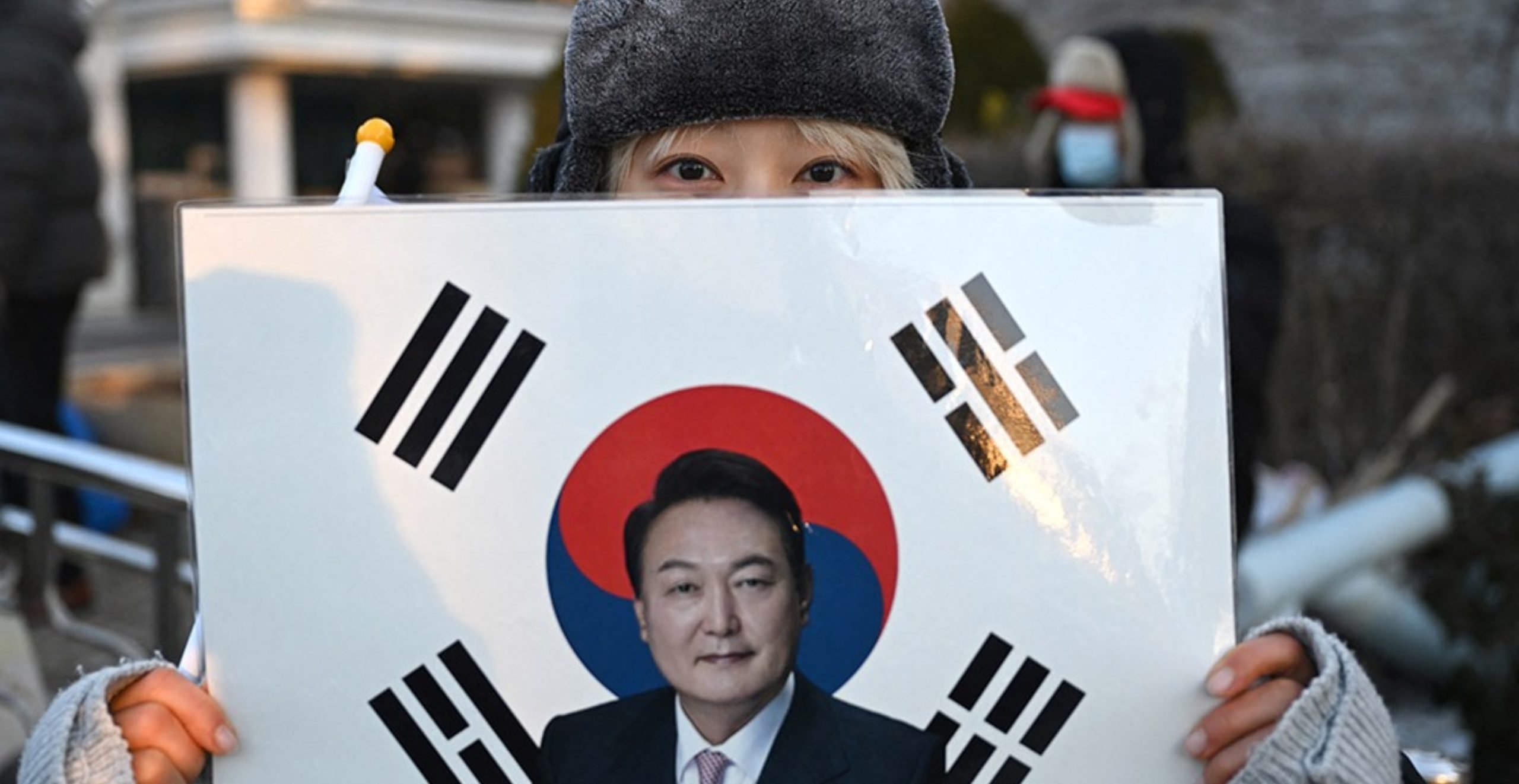
Former South Korean president Yoon Suk-yeol was sentenced on Friday to five years in prison for obstruction of justice and other charges, concluding the first in a series of trials stemming from his failed attempt to impose martial law in December 2024.
The sentence is shorter than the 10-year prison term sought by prosecutors against the 65-year-old conservative former leader, whose move against Parliament triggered a major political crisis that ultimately led to his removal from office.
Yoon, a former prosecutor, is still facing seven additional trials. One of them, on charges of insurrection, could potentially result in the death penalty.
On Friday, the Seoul Central District Court ruled on one of the multiple secondary cases linked to the affair, which plunged the country into months of mass protests and political instability.
International
U.S. deportation flight returns venezuelans to Caracas after Maduro’s ouster
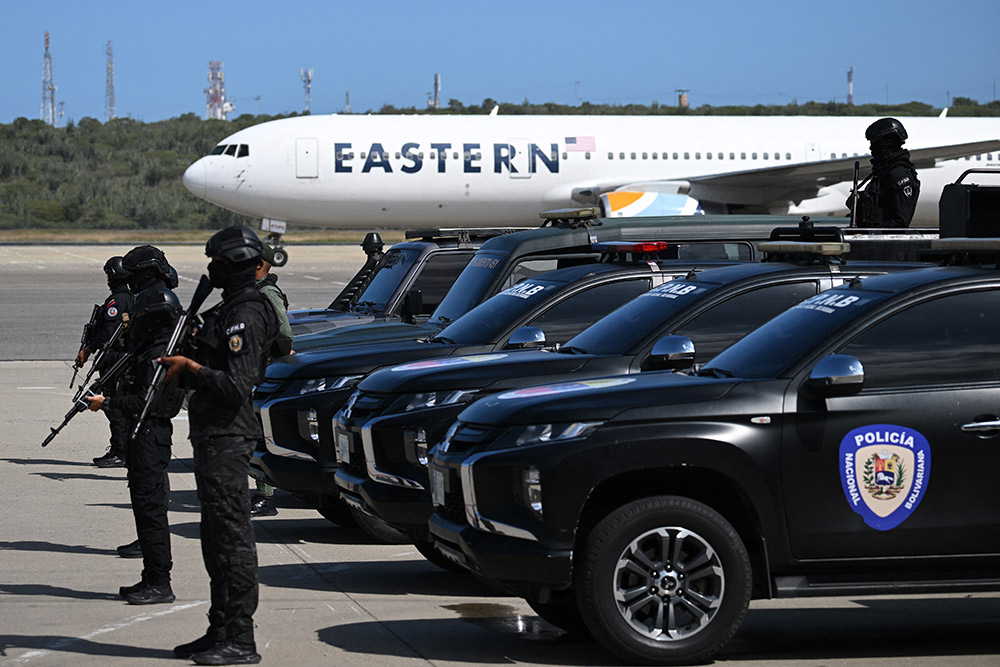
A new flight carrying 231 Venezuelans deported from the United States arrived on Friday at the airport serving Caracas, marking the first such arrival since the military operation that ousted and captured President Nicolás Maduro.
On January 3, U.S. forces bombed the Venezuelan capital during an incursion in which Maduro and his wife, Cilia Flores, were captured. Both are now facing narcotrafficking charges in New York.
This was the first U.S.-flagged aircraft transporting migrants to land in Venezuela since the military action ordered by President Donald Trump, who has stated that he is now in charge of the country.
The aircraft departed from Phoenix, Arizona, and landed at Maiquetía International Airport, which serves the Venezuelan capital, at around 10:30 a.m. local time (14:30 GMT), according to AFP reporters on the ground.
The deportees arrived in Venezuela under a repatriation program that remained in place even during the height of the crisis between the two countries, when Maduro was still in power. U.S. planes carrying undocumented Venezuelan migrants continued to arrive throughout last year, despite the military deployment ordered by Trump.
International
Sheinbaum highlights anti-drug gains after U.S. says challenges remain
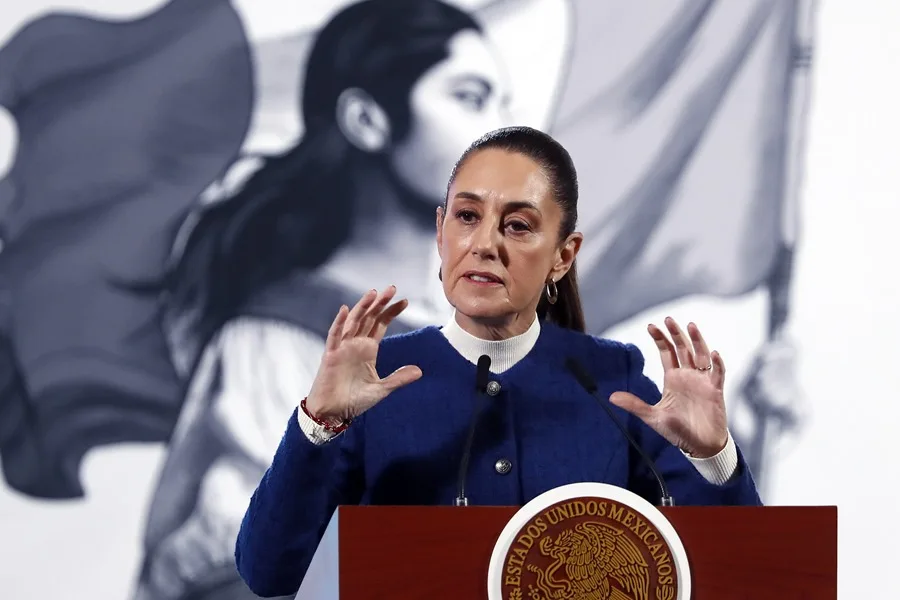
Mexican President Claudia Sheinbaum on Friday highlighted her government’s achievements in the fight against drug trafficking, after the United States said challenges remain in combating organized crime.
On Thursday, Mexican Foreign Minister Juan Ramón de la Fuente held talks with his U.S. counterpart, Secretary of State Marco Rubio. Following the meeting, the U.S. State Department said in a statement that “despite progress, challenges still exist” in addressing organized crime.
“There are very strong results from joint cooperation and from the work Mexico is doing: first, a 50% reduction in fentanyl seizures at the U.S. border,” Sheinbaum said during her regular morning press conference.
The president also said that authorities have seized nearly 320 tons of drugs and that there has been a “40% decrease in intentional homicides in Mexico” since the start of her administration on October 1, 2024.
Sheinbaum added that the United States should implement campaigns to reduce drug consumption within its territory and curb the flow of weapons into Mexico.
“There are many results and there will be more, but there must be mutual respect and shared responsibility, as well as respect for our sovereignties,” she said.
On Monday, Sheinbaum held a phone call with U.S. President Donald Trump to discuss security issues. She said she once again ruled out the presence of U.S. troops in Mexico to fight drug cartels.
Security has been a recurring issue used by Trump to threaten tariffs on Mexico and to pressure negotiations over the USMCA (T-MEC) free trade agreement, which are scheduled for 2026.
The agreement is crucial for Mexico’s economy, as about 80% of the country’s exports are destined for the United States.
-

 International5 days ago
International5 days agoDeadly van accident near Brazil border leaves 11 dead in Bolivia
-

 Central America5 days ago
Central America5 days agoU.S. and El Salvador maintain close partnership, embassy says
-

 International5 days ago
International5 days agoU.S. to host Danish and Greenlandic Foreign Ministers at the White House
-
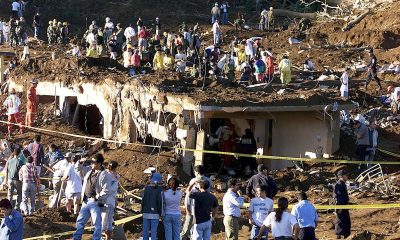
 Central America5 days ago
Central America5 days agoTaiwan’s $10 million donation after 2001 earthquakes allegedly diverted in El Salvador
-
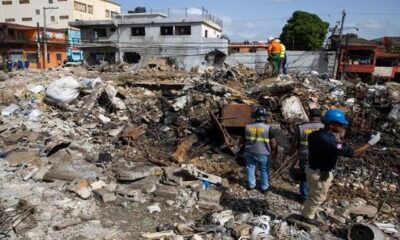
 International5 days ago
International5 days agoDominican court postpones hearing in deadly nightclub collapse case
-

 International5 days ago
International5 days agoPolice hunt gunmen after fatal shooting in Corsica
-
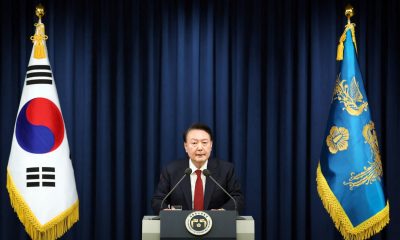
 International5 days ago
International5 days agoEx-President accused of bid to establish dictatorship as verdict nears in South Korea
-

 International5 days ago
International5 days agoVenezuelan opposition leader dedicates Nobel Prize to Trump
-
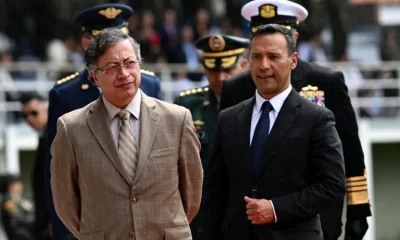
 International4 days ago
International4 days agoColombian Defense Chief Meets U.S. Officials to Advance Bilateral Narcotics Strategy
-

 International3 days ago
International3 days agoUkraine declares nationwide energy emergency amid russian attacks and extreme cold
-
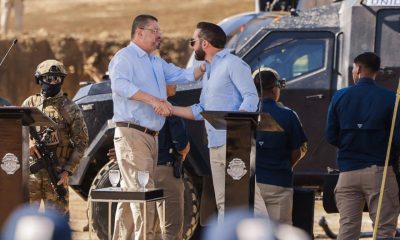
 Central America3 days ago
Central America3 days agoBukele warns crime can become a ‘parallel government’ during visit to Costa Rica
-

 International3 days ago
International3 days agoIran closes airspace amid U.S. threats and deadly nationwide protests
-

 International3 days ago
International3 days agoX moves to block Grok from creating sexualized images of real people amid legal scrutiny
-

 International3 days ago
International3 days agoHillary Clinton skips Epstein inquiry as house panel threatens contempt charges
-

 International3 days ago
International3 days agoFrance joins Denmark’s ‘Operation Arctic Resistance’ in Greenland amid U.S. tensions
-

 International3 days ago
International3 days agoU.S.–Denmark tensions escalate as Trump pushes NATO to back U.S. claim on Greenland
-
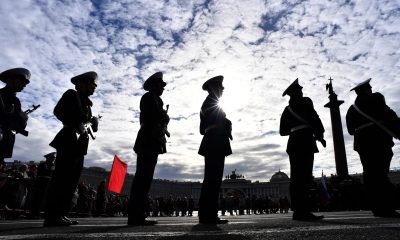
 International3 days ago
International3 days agoUK Intelligence estimates russian casualties in Ukraine at over 1.2 million
-
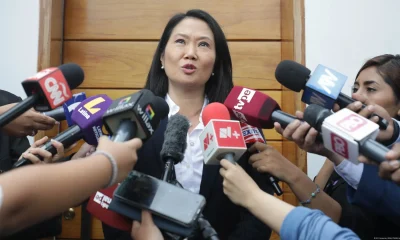
 International4 days ago
International4 days agoPeruvian Court Orders Definitive Dismissal of Money Laundering Case Against Keiko Fujimori
-
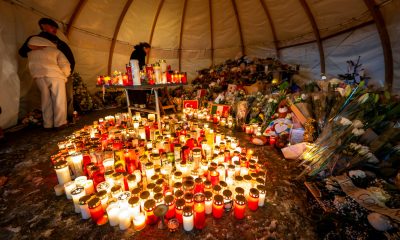
 International3 days ago
International3 days agoSwiss Canton of Valais Grants Emergency Aid to Victims of Crans-Montana Bar Tragedy
-

 International19 hours ago
International19 hours agoU.S. deportation flight returns venezuelans to Caracas after Maduro’s ouster
-

 International3 days ago
International3 days agoU.S. to suspend visa processing for applicants from 75 countries
-
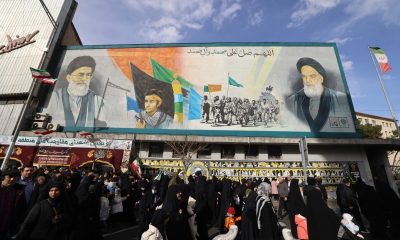
 International1 day ago
International1 day agoCanada accuses Iran of killing its citizen during anti-government unrest
-

 International1 day ago
International1 day agoSheinbaum highlights anti-drug gains after U.S. says challenges remain
-

 International18 hours ago
International18 hours agoFormer South Korean President Yoon sentenced to five years in prison


























